
Time & Mind-The Journal of Archaeology Consciousness and Culture
Scope & Guideline
Unveiling the Threads of Time and Thought
Introduction
Aims and Scopes
- Interdisciplinary Approaches:
The journal promotes research that integrates various disciplines such as cognitive neuroscience, anthropology, and performance theory to analyze archaeological findings and their implications for human consciousness. - Sensory Archaeology:
A significant focus is placed on sensory experiences and materiality, exploring how sensory engagements with objects and landscapes influence human cognition and cultural practices. - Cultural and Temporal Dynamics:
Research often delves into how concepts of time and cultural narratives shape human interactions with the environment, including the examination of calendars, rituals, and spatial boundaries. - Exploration of Myth and Symbolism:
The journal encourages studies that interpret archaeological artifacts and sites through the lens of myth, cosmology, and symbolic meanings, contributing to a deeper understanding of ancient belief systems. - Material Culture and Consciousness:
There is a consistent focus on how material culture informs human consciousness, reflecting on the cognitive and emotional dimensions of engaging with archaeological materials.
Trending and Emerging
- Sensory and Affective Engagements:
Recent publications increasingly explore how sensory experiences and emotional engagements with archaeological materials influence our understanding of the past, showcasing a growing interest in sensory archaeology. - Interdisciplinary Collaborations:
There is a notable trend towards interdisciplinary collaborations, where researchers from diverse fields come together to explore complex questions related to cognition, culture, and materiality. - Environmental and Anthropocene Studies:
Emerging themes focus on the relationships between human actions and environmental changes, particularly in the context of the Anthropocene, reflecting a growing awareness of sustainability and ecological impacts. - Temporal Dynamics in Archaeological Contexts:
An increasing emphasis on exploring the concept of time in archaeological contexts, including studies on calendars, rituals, and how past societies perceived and interacted with time. - Cognitive Approaches to Archaeology:
A rising interest in cognitive archaeology is evident, with research examining how cognitive processes shape human experiences and cultural expressions in the archaeological record.
Declining or Waning
- Traditional Archaeological Methodologies:
There seems to be a reduced focus on conventional archaeological methods and techniques, as the journal increasingly favors theoretical and interdisciplinary approaches over purely empirical studies. - Historical Narratives without Cognitive Context:
Research that solely emphasizes historical narratives without integrating cognitive or sensory perspectives appears to be less frequent, indicating a shift towards more holistic interpretations. - Static Interpretations of Archaeological Sites:
There is a decline in studies that present static interpretations of archaeological sites without considering their dynamic cultural and temporal contexts, as the journal moves towards more fluid and relational understandings.
Similar Journals
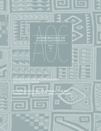
ANTHROPOLOGY OF CONSCIOUSNESS
Bridging Anthropology and the Study of ConsciousnessAnthropology of Consciousness is a prestigious journal published by Wiley, focusing on the intricate ties between consciousness and anthropology. With its ISSN 1053-4202 and E-ISSN 1556-3537, this journal has established itself as a key platform for scholars investigating the cognitive, cultural, and experiential dimensions of consciousness. Operating since 1990 and with converged years extending to 2024, it has achieved a commendable Q2 ranking in Anthropology for 2023, reflecting its significance in the field. Although it is not an open-access journal, it provides robust access options through various university and library subscriptions. The journal aims to disseminate high-quality research and foster interdisciplinary dialogue among researchers, professionals, and students interested in the anthropological aspects of consciousness. With its address located at 111 River St, Hoboken 07030-5774, NJ, United States, it continues to be a vital resource for those exploring the depths of human experience.
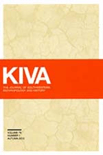
Kiva-Journal of Southwestern Anthropology and History
Diving Deep into Southwestern NarrativesKiva - Journal of Southwestern Anthropology and History is a distinguished academic journal published by Routledge Journals, Taylor & Francis Ltd, that serves as a vital resource for scholars in the fields of anthropology, archaeology, and history. With an ISSN of 0023-1940 and an E-ISSN of 2051-6177, this journal has established itself as a significant avenue for scholarly communication since its inception in 1964. It consistently ranks in the top quartiles, including Q1 in Archaeology and Q2 in Anthropology, reflecting its high impact and rigorous peer-review process. Covering a wide array of topics pertinent to the Southwestern United States, Kiva invites original research articles, reviews, and methodological papers that advance understanding of the region's rich cultural heritage and historical narratives. While currently not open access, its commitment to disseminating quality research makes it an essential reading for researchers, professionals, and students aiming to explore the multifaceted dimensions of southwestern studies.
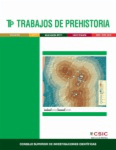
Trabajos de Prehistoria
Exploring the Depths of Prehistory: Where Research Meets DiscoveryTrabajos de Prehistoria is a distinguished peer-reviewed journal published by the Consejo Superior de Investigaciones Científicas (CSIC) since 1988, and it has established itself as a vital resource in the field of archaeology and prehistory. With an impressive impact factor and an open access policy, the journal aims to disseminate high-quality research that contributes to the understanding of human history and prehistorical studies. This Spanish journal has consistently ranked in the top quartile (Q1) in both the Arts and Humanities and Social Sciences categories, reflecting its significance in advancing archaeological scholarship, with Scopus rankings placing it in the 85th percentile among its peers. Covering a broad scope of topics related to archaeology, it serves as a platform for innovative research that connects researchers, professionals, and students globally, enhancing academic dialogue and fostering interdisciplinary collaboration. Based in Madrid, European researchers and global academics alike benefit from its open access model, promoting wider distribution and accessibility of foundational studies in the field.

Origini
Bridging the Gap Between Past and Present Knowledge.Origini is a distinguished journal dedicated to the field of archaeology, published by EDIZIONI QUASAR S TOGNON SRL in Italy. With an ISSN of 0474-6805, it offers a platform for researchers and professionals to share their latest findings and insights. Having achieved a significant Q2 ranking in both Archaeology (Arts and Humanities) and Archaeology (Social Sciences) categories according to Scopus, it positions itself as a respected source of scholarly communication in the discipline. Over the converged years from 2017 to 2023, Origini has consistently aimed to advance archaeological research, fostering an environment where innovative theories and methodologies can be developed and discussed. Although it is not an Open Access journal, its contributions remain vital for academics and students seeking to deepen their understanding of archaeological practices and historical narratives. With a commitment to excellence, Origini stands as an essential resource within the archaeological community, inviting contributions that push the boundaries of knowledge and interpretation.
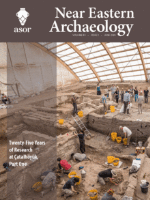
NEAR EASTERN ARCHAEOLOGY
Advancing Knowledge Through Archaeological DiscoveryNEAR EASTERN ARCHAEOLOGY, published by University of Chicago Press, is a premier journal dedicated to the field of archaeology, particularly focusing on the rich cultural heritage and archaeological findings of the Near East. With an ISSN of 1094-2076 and an E-ISSN of 2325-5404, this esteemed publication provides a vital platform for scholars and practitioners to share their research, insights, and discoveries. The journal holds an impressive ranking in the Q1 quartile for both Archaeology and History in 2023, reflecting its significant impact within these fields and a robust history of scholarly contribution. The journal has been pivotal in shaping discussions around archaeological methodology, theory, and contemporary issues from 2002 to 2024, as it continues to reach a wide audience through various access options. With Scopus rankings placing it in the top percentiles for both History and Archaeology, NEAR EASTERN ARCHAEOLOGY represents an essential resource for researchers, professionals, and students alike, fostering the exploration and understanding of the region's archaeological narrative.
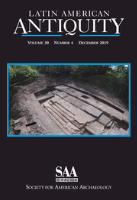
LATIN AMERICAN ANTIQUITY
Advancing Knowledge in Latin American Archaeology and HistoryLATIN AMERICAN ANTIQUITY is a prestigious journal published by Cambridge University Press, focusing on the archaeology and history of Latin America. With an impressive impact factor reflecting its critical role in the academic community, this journal exemplifies excellence in research, landing in Q1 across multiple categories, including Archaeology and History, as per the 2023 category quartiles. The journal's scope covers a broad range of topics related to pre-Columbian cultures, ancient civilizations, and historical developments, making it essential reading for researchers, professionals, and students keen on exploring the rich tapestry of Latin American heritage. Although it is not an open-access publication, LATIN AMERICAN ANTIQUITY remains a vital resource for those dedicated to advancing knowledge in this dynamic field. With its commitment to scholarly rigor and a strong ranking in Scopus, it serves as a cornerstone for academic dialogue and investigation.
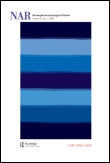
Norwegian Archaeological Review
Pioneering Perspectives on Human HistoryNorwegian Archaeological Review, published by Routledge Journals, Taylor & Francis Ltd, is a leading interdisciplinary journal that has made significant contributions to the field of archaeology since its inception in 1968. With an impressive Q1 ranking in the Arts and Humanities category for archaeology and an 86th percentile ranking in Scopus, this journal serves as a crucial platform for showcasing innovative research that advances our understanding of human history and cultural heritage. The Review provides a diverse range of scholarly articles, critical reviews, and thoughtful discussions, making it an essential resource for researchers, professionals, and students alike. While the journal currently does not offer an open-access option, it continues to maintain high editorial standards and relevance within the academic community, with publication converging up to 2024. The Norwegian Archaeological Review thrives as a nexus for academic discourse, encouraging the exploration of archaeological methodology, theory, and practice against the backdrop of contemporary global challenges.

Intersecciones en Antropologia
Connecting cultures through innovative research.Intersecciones en Antropologia, published by the Universidad Nacional del Centro de la Provincia de Buenos Aires (UNICEN), Facultad de Ciencias Sociales, is a premier open-access journal in the field of anthropology, having established its presence since 2010. With an impressive impact factor and currently holding the distinguished Q1 quartile ranking in anthropology for 2023, this journal has quickly become a vital resource for scholars and practitioners alike, offering a platform for innovative research and critical discussion. The journal aims to advance anthropological scholarship by encouraging the dissemination of diverse perspectives and stimulating dialogue across geographical and cultural boundaries. Its open-access model, adopted in 2017, ensures that valuable research findings are accessible to a global audience, fostering collaboration and engagement within the academic community and beyond. Located in the vibrant cultural context of Argentina, Intersecciones en Antropologia serves as a conduit for significant anthropological dialogues, making it an essential read for those dedicated to understanding and contributing to the evolving landscape of social sciences.
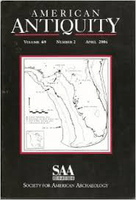
AMERICAN ANTIQUITY
Advancing Knowledge in Archaeology and History.AMERICAN ANTIQUITY, published by Cambridge University Press, stands as a premier journal in the fields of archaeology, arts and humanities, history, and museology. With an enduring legacy since its inception in 1935, this journal has consistently ranked in the Q1 category across several disciplines, reflecting its significant impact and authority in shaping contemporary scholarly discourse. It boasts impressive Scopus rankings, placing it in the 99th percentile for archaeology and history, which underscores its critical role in advancing research and understanding of American archaeology and related fields. Although it does not currently offer open-access options, the journal remains a vital resource for researchers, professionals, and students seeking high-quality, peer-reviewed content. As it converges toward 2024, AMERICAN ANTIQUITY continues to foster innovative scholarship and preserve knowledge, making it an essential reading for anyone invested in the exploration of cultural heritage and historical narratives.

Prilozi Instituta za Arheologiju u Zagrebu
Fostering scholarly dialogue on the cultural heritage of the region.Prilozi Instituta za Arheologiju u Zagrebu is a prominent academic journal published by INST ARHEOLOGIJU, dedicated to advancing the field of archaeology and related historical studies. Operating in Croatia, this journal serves as a vital platform for scholars, researchers, and students to disseminate innovative research and insights within the realm of archaeology, with a focus on the rich cultural heritage of the region. The journal spans contributions from 2002 to 2011 and has ongoing publication since 2013, reflecting its commitment to contemporary archaeological discourse. With a growing reputation, it has achieved a Q3 ranking in the fields of Archaeology and Arts and Humanities, and a Q2 ranking in History, signifying its impact and relevance in the academic community. Although Open Access options are not available, the journal remains an essential resource for those pursuing in-depth knowledge and research in archaeology. Researchers can harness the journal's extensive scope to explore critical historical narratives and archaeological findings, solidifying its importance in both local and global contexts.